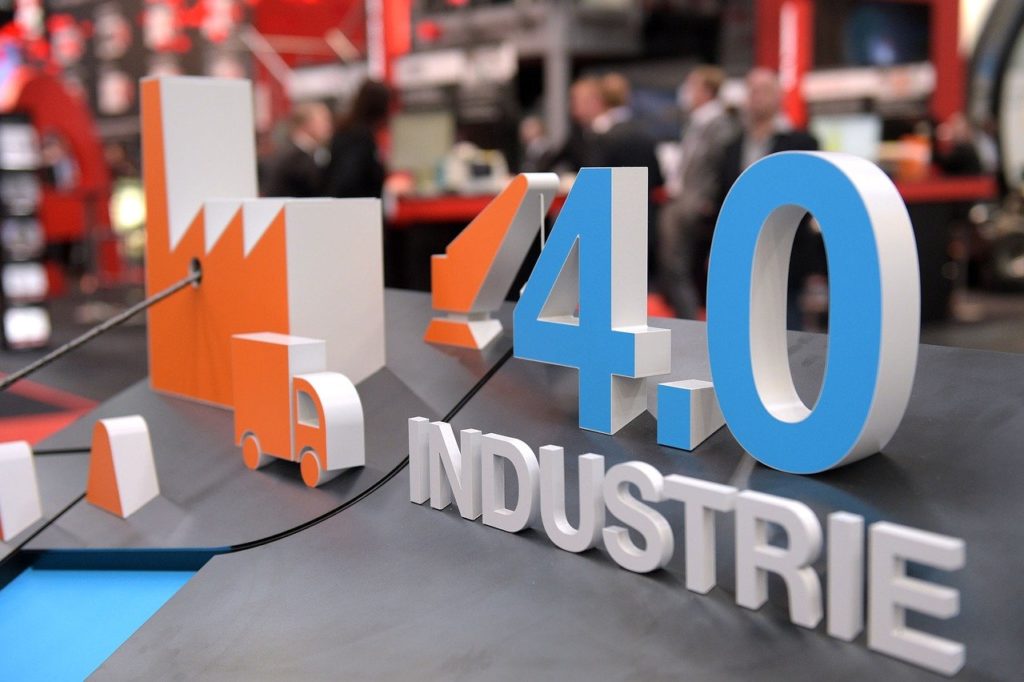How are Lean Manufacturing and Industry 4.0 connected?

Lean manufacturing is widely recognized and accepted in the industrial world. It concerns the strict integration of the human being in the manufacturing process, a continuous improvement and focuses on value-added activities by avoiding waste.
However, a new paradigm called Industry 4.0 or the fourth industrial revolution has recently emerged in the manufacturing sector. It enables the creation of an intelligent network of machines, products, components, properties, people and ICT systems across the value chain to have a smart factory.
The common objective of Lean Manufacturing and Industry 4.0 is operational excellence
For decades, manufacturers have used lean principles and tools to reduce operational complexity and improve productivity.
First, the lean approach lays the foundation for operational excellence by standardizing processes, instilling a culture of continuous improvement and empowering employees on the shop floor.
Second, with the increasing complexity of operations, many companies have found that lean management alone is not sufficient to meet their operational challenges.
Recently, a set of advanced digital technologies known as -Industry 4.0- has emerged to offer new approaches to managing complexity and improving productivity.
So, by deploying the right combination of technologies; manufacturers can increase speed, efficiency and coordination and even facilitate self-managed plant operations. Both approaches have the same goal, which is operational excellence.
Different approaches, for a common goal
Lean manufacturing
Lean management and Industry 4.0 support the goals of operational excellence; but they use different types of tools to achieve these goals.
The Lean management approach reduces complexity and costs by eliminating waste and non-value added activities throughout a process or value chain. It provides techniques for involving all employees in the continuous review and improvement of efficiency. The approach is based on management techniques such as waste reduction.
Industry 4.0
Industry 4.0 ("The Fourth Wave of Technological Advancement in Manufacturing") is based on nine core technologies: additive manufacturing; advanced robotics; augmented reality; big data and analytics; cloud computing; cybersecurity; horizontal and vertical systems integration; the Industrial Internet; and simulation.
That's because sensors; machines; parts and IT systems are connected along a value chain that extends beyond a single enterprise. These connected systems can interact and analyze data to predict failures; reconfigure and adapt to change. Manufacturers can achieve new levels of operational performance. So, they can move from preventive maintenance to predictive maintenance; meaning maintenance tasks are performed only when needed.
Thus, Industry 4.0 also allows companies to share the benefits of automation technology more broadly within the organization; for example, by equipping and training line workers to receive and apply real-time information to their machines.
Overall, by increasing transparency; improving predictability and; ultimately, enabling self-controlled systems; Industry 4.0 promotes faster, more flexible and more efficient processes. Manufacturers can apply these benefits to achieve the broader goals: producing higher quality products and reducing costs.
Lean industry 4.0
Manufacturers looking to optimize their operations must understand the interplay between traditional Lean management and Industry 4.0.
In particular, several studies of operational excellence programs in recent years have seen companies generate valuable synergies by implementing lean management and Industry 4.0 holistically, rather than independently or sequentially.
Indeed, in most cases; the integrated application of Lean management and Industry 4.0 - which we call Lean Industry 4.0 - is the most effective way to achieve the next level of operational excellence.
As a result, manufacturers that have successfully deployed Lean Industry 4.0 can reduce conversion costs by up to 40% in five to ten years - far better than the reductions achieved by the best independent deployment of Lean or Industry 4.0. To realize the full benefits; a manufacturer must tailor the application of Lean Industry 4.0 to address its specific challenges throughout the supply chain and at the plant level.



